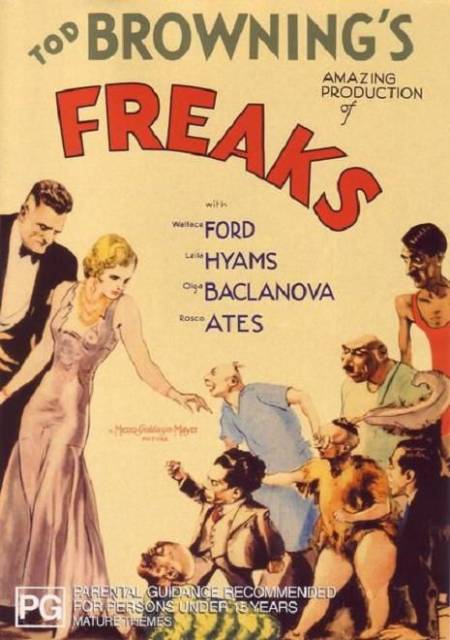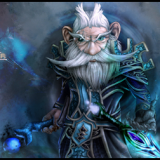Thoughts on "Freaks" (1932): Film Review
By esotericus 3 Comments

That's basically it, aside from the rather laughable fate of story's main antagonist (although upon researching into the matter further, it apparently isn't as implausible as I thought it was—and I admit to getting squeamish after the fact). With that brief description, one would almost have thought that I was describing a drama as opposed to a horror film that was originally meant to rival the other traditional horror films that were coming out at the time.
But it certainly had the effect of a horror film for its original audience. In the extras, we learn that supposedly a woman had a miscarriage while watching the film and yet another woman ran screaming from the theater during its first screening in San Diego. There's some speculation that these were publicity stunts, but as one of the interviewees stated, a miscarriage is major step for a publicity stunt. The film was a failure at its launch because people were so disturbed by the subject matter. The film went on to be banned in many theaters and in many states. Apparently in some places these issues still come up.
In two of the central roles we have Harry and Daisy Earles (as Hans and Frieda), a well-known brother-and-sister duo of little people who look uncannily like children in the film. Harry in particular had an extensive career, and he is far from the oddest of the cast. Other wonders include Prince Randian, who in one scene rolls and lights a cigarette despite having no arms or legs; Daisy and Violet Hilton, conjoined twins whose situation creates a number of interesting complications; Johnny Eck, the "human torso" who lacked a visible lower body due to sacral agenesis; Frances O'Connor as the "Armless Girl"; Schlitzie, a famed microcephalic who toured with Barnum and Bailey, and others such as Jane Barnell as the requisite bearded lady.
And as for the basis for this horror? For one, we have the constant and frank depiction of the "freaks" in their everyday lives. Here we see them talk about love and life, we see them joke, and we see them comfortable. As opposed to being horrifying, the majority of the film is rather eye-opening and insightful in its portrayal of how easily people can live despite having such obvious differences. Above all, we learn that these people are humans.
I suppose we were meant to find Cleopatra's (Olga Baclanova) feigned romance with Hans horrifying because, as the tagline asks us, "Can a Full Grown Woman Truly Love a Midget?" There is also a scene at Hans and Cleopatra's wedding in which the entire "freak" casts starts chanting "One of us! We accept her! One us us! Gooble gobble! Gooble gobble!" in honor of the "normal" bride while a loving cup is shared around the table. Cleopatra is horrified by this and hilarity ensues, although it really is no different than any other wedding party save for the nature of the attendees. And then finally we have the hunt scene in the rain, which actually feels much like any scene featuring Wyatt Earp in another film in which he seeks personal justice for a wrong.
About three quarters through the film, I realized that none of this had any adverse affect on me at all, save for a dislike of the main "normal" characters (and even a slight sense of guilt). I realized that, without meaning to, as I was seeing this as an expose of the problems of society surrounding acceptance. And that led me to believe that one of the reasons that I felt no revulsion like the original viewers may be precisely because I have—in a very good way—become desensitized to such portrayals.
Let's face it—desensitization gets a lot of bad press these days. Time and time again we're reminded about how bad constant bombardment by media such as movies and video games (not to mention graphic photographs and music) is for our perception of the world, yet I have come across very little saying that this same bombardment may in some cases be good for us. While I have little doubt that there are still people who are profoundly disturbed by frank portrayals such as this, many of us through perusing articles in popular scientific publications, reading magazines such as National Geographic, watching documentaries or even simple newscasts on television, watching movies that today place oddities before us in living color and occasionally even celebrate them, have learned that people such as those presented in Freaks, while rare, are very much people like us. While they may catch our attention at the train station or somesuch, many of us—because of this bombardment—do not view them as horrors.
At the very least, if people are still not to the point where they can just pass such people in the street without even a glance (which I believe will never happen), desensitization has at least brought us a long way from miscarriages in dark movie theaters as a result of seeing someone born differently than we were.
